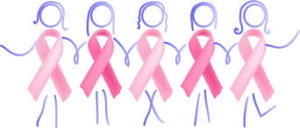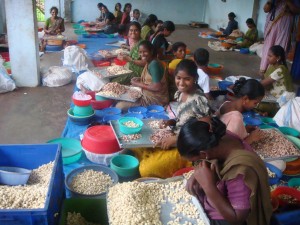Blog
Please go through the Presentation below to know more details and current activities at Maanavseva.
Here is the slideshow of the above presentation.
Breast Cancer is not an invisible ghost that eludes. Only when allowed to roam un-caught and unguarded, does it wreak havoc in the life of a woman and leaves a trail of destruction in its wake. And bearing the brunt of this destruction is the woman-the rural woman.
For the rural woman, the battle against Breast Cancer never really begins.
She lives in a word of delusion and nonchalance even as she helps her husband and struggles to make both ends meet. This means that the average Indian rural woman who is either busy tilling fields or engaged in other daily activities such as taking care of children, earn additional wages and other household chores does not know when the devil has struck.
Fact:50%-70% advanced, undiagnosed cases of breast cancer belong to villages. The reasons for this are:
- In India, routine physical examinations are not common. Medical check-up does not appear high on the radar of poor people and they do not see a physician until experiencing a symptom. As a result, the ailment is diagnosed late, sometimes too late.
- Women do not place their health as a priority over other needs of the family such as children’s education, daughter’s marriage etc.
- Discussion of health issues concerning private parts such as breast are considered awkward by women and are kept secret even from their husbands in the initial stages, thereby risking progression of the disease.
- Decisions regarding the health care and treatment are often dictated by the older and male family members who may not attach the needed importance to the women health issues until it is too late. While the family support system is strong, ignorance and indifference can make the problem vexing. Educating the decision-makers is therefore very important.
- Many husbands are agricultural laborers, who do not understand why their wives need to go to another town for an examination and to stay away from work/home when they appear fine from the outside and are able to work.
- While the rich can afford medical care, and workers in the organized sector get medical expenses reimbursed by their employers, unemployed or underemployed individuals and those in the unorganized labor sector do not have any health coverage except Government subsidies and schemes.
- Primary Health Care Centers in India are mostly ill-equipped, inadequate and ill-managed.
- In India, many non-oncology medical professionals (general surgeons, gynecologists etc.) tend to treat breast cancer themselves. These result in incorrect decisions, unwanted investigations, and botched up surgeries which adversely affect the outcome of the procedure and longevity of the patient. A correct diagnosis at the outset minimizes these ill-effects.
- Government schemes that subsidize or pay for the treatment expenses for UPL (Under Poverty Line) citizens are difficult to navigate especially for illiterate population living in remote villages.
Here is where Manavseva hopes to make a difference. In its crusade against breast cancer, Manavseva hopes to empower the rural women with education, awareness, preventive check-ups and early detection and treatment which will help in reducing and or eliminating expensive treatment and vastly improve the quality of life and survival rates for those who are impacted by breast cancer.
Maanavseva firmly begins that a battle well begun is half won.
To know more about our initiatives and events click here. To make a donation, click here.


